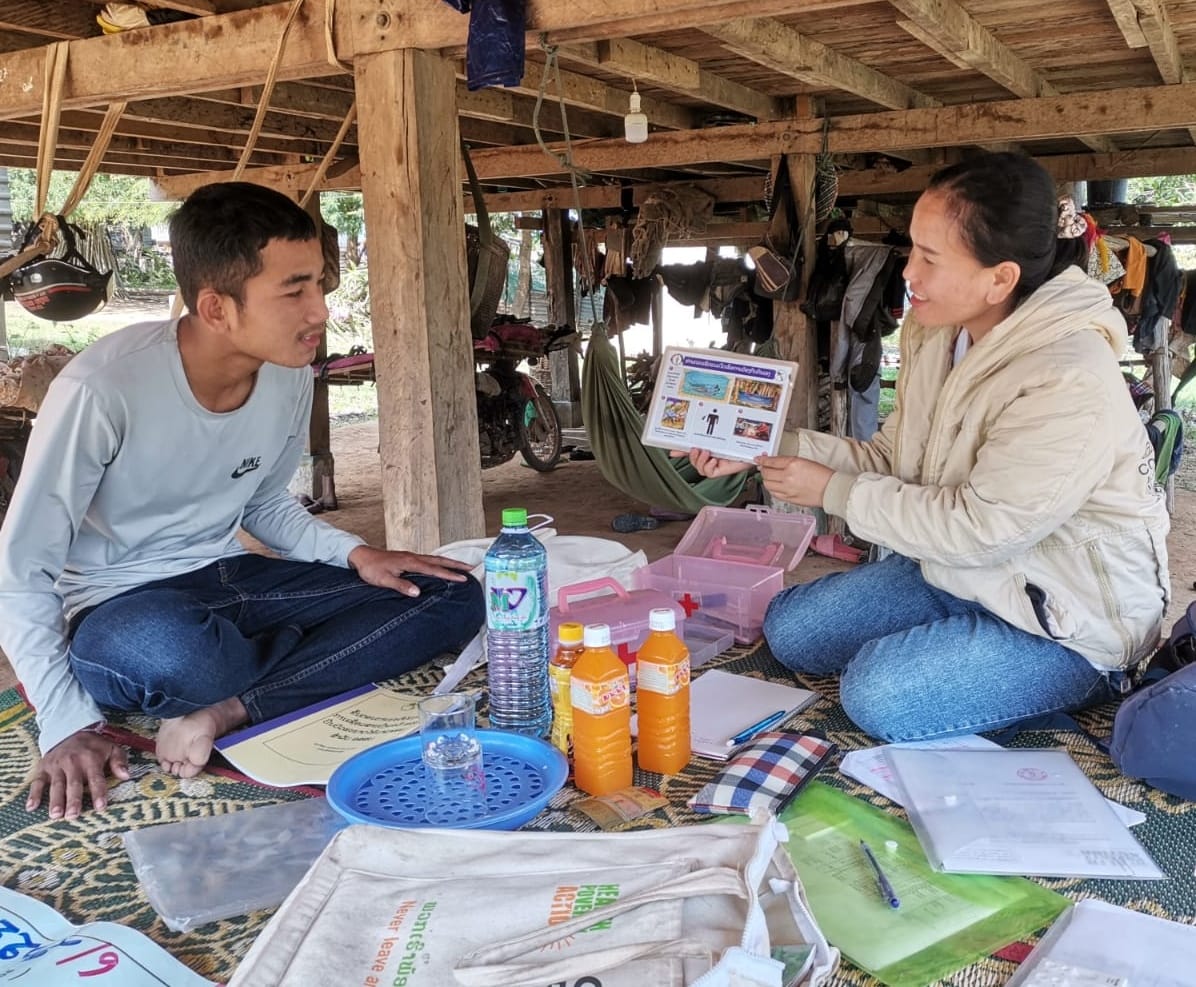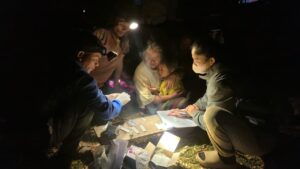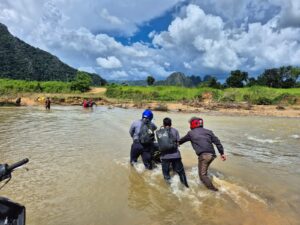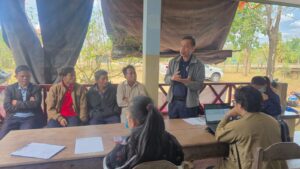
In Laos, communities we serve are navigating a multifaceted crisis: economic instability, a fragile and underfunded health system, and a severe cost-of-living crisis. Access to healthcare is hampered by geographical, financial, and socio-cultural barriers, with rural and ethnic minority populations the worst affected. Fragmented networks limit the ability to detect and treat diseases like malaria. Extreme weather events, high inflation, and shrinking aid further threaten health services.
Against this backdrop, Health Poverty Action works to strengthen community and national health systems, delivering essential services while addressing systemic drivers of poor health. Through a network of over 500 village health volunteers, we provide malaria testing and treatment to tens of thousands of people in remote areas. Volunteers also deliver education, maternal and child health support, and contribute to wider disease surveillance, helping communities build resilience against future health challenges.
A community transformed

Pictured above: Community members respond to a malaria case being detected.
Som has served as a village health volunteer in his community in Sepon district for five years, trained to prevent, diagnose and treat malaria. When Som began as a volunteer, malaria was breaking out widely and causing many families to panic. Today, the long-term efforts of our village health volunteers have put total malaria eradication within touching distance.
Som shared his pride in his volunteer role, “I have learnt how to test and share knowledge to diagnose. With each house visit, I became known as a volunteer doctor. I am very pleased I have treated many infected people from severe conditions.”
“I really see how good health unlocks daily life: school attendance, farm yields, the calm of a good night’s sleep.”

Pictured above: Village Health Volunteers reach remote communities on their routine visit.
Alongside his community, Som has witnessed the transformation of his village. Fear has been replaced by trust. People from high-risk areas are now quickly screened and connected with free treatment, and over time malaria cases have fallen to almost zero.
Yet Som knows the threat persists, “malaria doesn’t announce its return; it slips in quietly, through a single traveller in the rainy season. Without tests, supervision, and refresher training, we risk missing the first spark… I want to protect what we’ve built: strong surveillance [and] ongoing community education.”
“When knowledge and trust reach every doorstep, disease has nowhere to hide.”
Beyond malaria, Som supports his community with maternal and child health, encouraging safe deliveries, following up with pregnant women, and ensuring newborns receive vaccinations, while also helping prevent seasonal communicable diseases.
Sustaining progress

Pictured above: Boun discussing capacity building with Village Health Volunteers.
Boun, our Senior Provincial Project Officer in Savannakhet province, has witnessed the impact of volunteers like Som firsthand.
“The recent reduction in global funding has been more than a financial adjustment; it’s a structural shock.” Fewer district health facilitators mean volunteers and health centre staff lose the supervision and oversight they depend on to maintain data quality and keep services consistent.
Boun insists this is the time to press on, not to step back. “Malaria elimination is within reach, but cutting funding now would jeopardise years of progress. We are only a few steps away and those final steps require sustained investment… History shows malaria rebounds when control efforts falter.”
“This is not the moment to retreat; it’s the moment to finish what we started and secure a healthier future for all.”
Thanks to the dedication of village health volunteers, Health Poverty Action’s community-embedded approach, and ongoing partnerships, tens of thousands of people in Laos are now living healthier lives, and malaria elimination is within touching distance.

